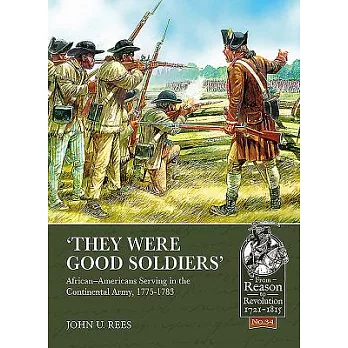The role of African-Americans, most free but some enslaved, in the regiments of the Continental Army is not well-known; neither is the fact that relatively large numbers served in southern regiments and that the greatest number served alongside their white comrades in integrated units.
'They Were Good Soldiers' begins by discussing, for comparison, the inclusion and treatment of black Americans by the various Crown forces (particularly British and Loyalist commanders, and military units). The narrative then moves into an overview of black soldiers in the Continental Army, before examining their service state by state. Each state chapter looks first at the Continental regiments in that state's contingent throughout the war, and then adds interesting black soldiers' pension narratives or portions thereof. The premise is to introduce the reader to the men's wartime duties and experiences. The book's concluding chapters examine veterans' postwar fortunes in a changing society and the effect of increasing racial bias in the late eighteenth and early nineteenth centuries.
'They Were Good Soldiers' makes extensive use of black veterans' pension narratives to 'hear' them and others tell their stories, and provides insights into their lives, before, during, and after the war.



 天天爆殺
天天爆殺  今日66折
今日66折 

























 博客來
博客來 博客來
博客來 博客來
博客來 博客來
博客來 博客來
博客來